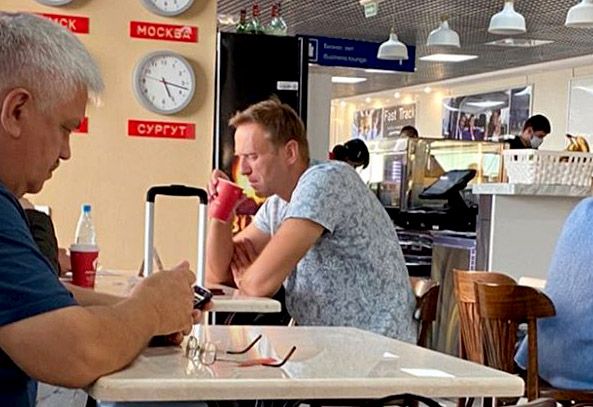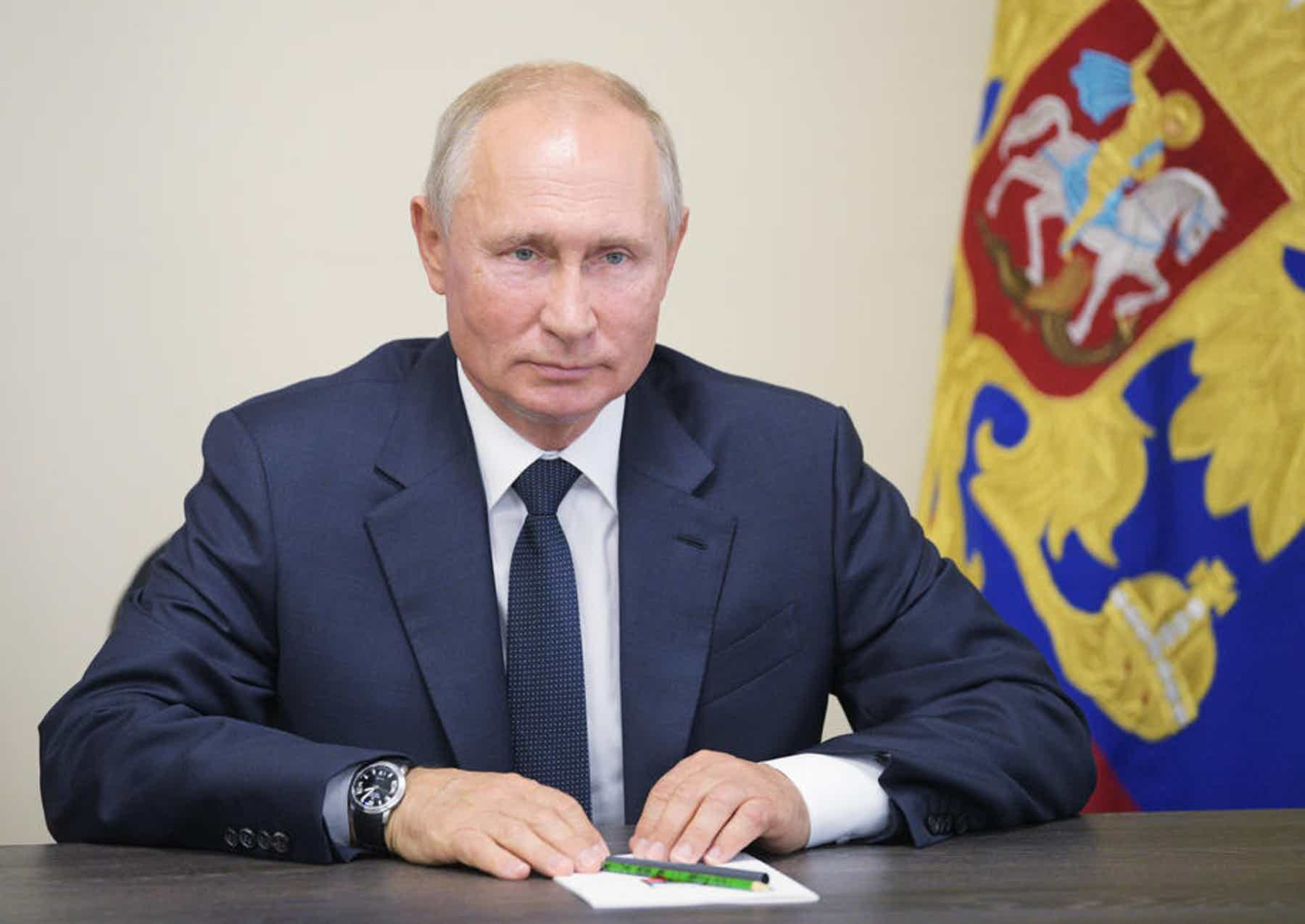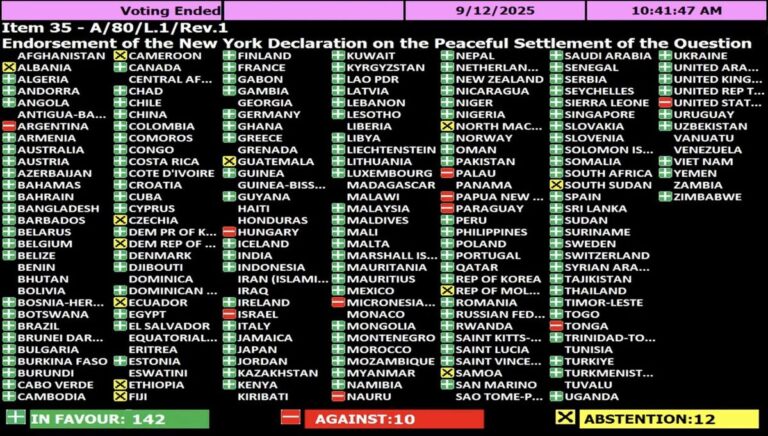
Novitsjok is the same type of neurotoxin that the retired Russian intelligence officer Sergei Skripal (69) and his daughter Julia (36) were poisoned with in England on March 4, 2018.
British police believe that two men who worked for the Russian security service GRU were behind the attack. Both survived, but an outsider woman was killed.
It was the first known case where Novitsjok is used. Photo: Private
▶️ Berlin willing to rethink commitment to key gas pipeline over Navalny poisoning https://t.co/ZikmW0a5Pg pic.twitter.com/Vpo4dHOOU2
— FRANCE 24 English (@France24_en) September 8, 2020
Michael S Goodman, King’s College London; David Frey, United States Military Academy West Point, and David Gioe, United States Military Academy West Point
Vladimir Putin’s intelligence and security organs have used a variety of lethal ways over the past few decades to dispatch those who oppose him or the Russian state – an increasingly difficult line to draw. These murders and attempted murders are often theatrical and laced with morbid messaging. The recent poisoning of Putin opponent Alexei Navalny with the nerve agent Novichok has again illustrated the Russian president’s willingness to sanction dramatic homicide as a tool of the state.
Putin’s prioritisation of theatrical vengeance – even at the expense of large-scale diplomatic reprisals and biting economic sanctions – reveals both the nature of his regime and his obsession with maintaining and projecting power.
Political assassination during Putin’s reign is in keeping with Soviet and Russian traditions, but the brazenness of the Navalny poisoning and its timing during the swelling Belarus protests shows both continuity and change. After Stalin’s death in 1953 the Politburo of the Communist Party, not a single person, was the embodiment of the state during the cold war. Putin has blurred and conflated such distinctions since he assumed power in 2000.
Ruthlessness
Like his Soviet forebears, Putin presides over a declining state in which power intermingles with corruption and extrajudicial murder. The attempted poisoning of former Russian military intelligence officer and British spy Sergei Skripal in 2018 first introduced Novichok into the British vernacular. Fellow Russian intelligence officer and British agent Alexander Litvinenko did not survive his poisoning in 2006 with Polonium-210 in a cup of tea. His murder, according to the official British inquiry, was “probably” approved by Putin personally.
Putin’s well of ruthlessness runs deep, and he has not hidden his willingness to engage in “wet affairs” – such as murders, kidnapping or sabotage. It would be self-defeating to keep his readiness for vengeance secret: it’s a message he wants those Russians who may get grassroots political inspiration from the protests over the border in Belarus to hear.
When asked about specific killings, Putin routinely evades such questions as deftly as a talented spy evades surveillance. But when speaking in general terms, Putin has been clear. Globalsecurity.org and others quoted the Russian leader as threatening that “traitors will kick the bucket, trust me”, after Skripal was released in a spy swap in 2010.

Personal attacks on Putin are seen as existential attacks on the Russian state. Alexei Druzhinin/Sputnik/Kre/EPA
Given the melding of leader with state, Putin has increasingly characterised personal disloyalty as a threat to the Russian state. So although former intelligence turncoats are frequent targets of Putin’s vengeance, victims also include journalists and political rivals, particularly those who investigate, expose, and criticise corruption among Putin and his inner circle. Navalny’s apparently effective efforts to organise legitimate opposition through the ballot box would be intolerable for any autocrat who is unsure how to govern without complete control.
Soviet poisoning playbook
Although poisoning is arguably the most dramatic form of Russian state-sponsored murder, outspoken Putin critics have been assassinated with more pedestrian means: in politician Boris Nemtsov’s case, four bullets in the back in February 2015. Likewise, Russian investigative journalist Anna Politkovskaya was shot on October 7 2006 – also Putin’s birthday – in her Moscow apartment building. Such killings could be cynically attributed to unfortunate street crime in a case of implausible denial, but Novichok leaves no room for doubt.
Read more:
Novichok: how are victims surviving poisoning?
Perceived enemies of the Russian state, like the Soviet Union before it, have met their ends in a dizzying variety of gruesome ways, but why does the fascination with poison endure? There are tactical and strategic considerations. An assassin cannot expect a clean getaway after shooting a pedestrian on Waterloo Bridge in London, but a puncture wound with a ricin-tipped umbrella would suffice, as in the case of Bulgarian dissident Georgi Markov’s assassination by Soviet intelligence in 1978.
Today, Soviet-created Novichok has replaced ricin. It offers the assassin advantages such as stealth and time for escape. It can be administered by exposure to everyday items such as doorknobs or tea. It appears in a sleepy city like Salisbury, as in the case of Skripal, or on Navalny’s flight from Siberia.
Additionally, a poison victim suffers, often publicly, yielding strategic effects. The photographs of the pitiable Litvinenko, hairless, gaunt, suffering in his hospital bed, grimly underscored the intended message. While any thug can murder with a gun, Soviet and subsequently Russian leaders have made assassination into a dramatic art form. The use of exotic poisons shows that confrontations with power are not a battle between two people, but rather bring the full resources of the state to bear against an individual, framing the situation as hopeless and futile. Poison evokes fear that you are never safe, never out of reach.
Choppy waters
Putin is a standard-bearer, rather than a pioneer in the long history of Russian political assassination. Still, the brazenness of an unambiguous assassination attempt on a figure like Navalny, and the political circumstances in Minsk, matter. They can be interpreted as the act of a leader whose hand may be feeling unsteady on the rudder of the ship of state.
At the same time, however, recent Russian constitutional reforms have erased any line between leader and the state, and may give Putin the confidence to deal even more harshly with opponents. But this expanded power has not offered more tools to deal with, or co-opt, the most vocal opponents. Those who cannot be bribed must be intimidated. Those who cannot be intimidated must be silenced.
Read more:
Belarus: what role could Russia play in Alexander Lukashenko’s future?
If Putin has successfully manipulated the political process to make himself president for life, the coronavirus has been less cooperative in bending to his will. Claims of a successful COVID-19 vaccine notwithstanding, Russia’s ineffective response to the pandemic has laid bare the inadequacy of the regime. With the economic consequences of the pandemic and the oil crisis, combined with general Russian Putin fatigue, opposition to Putin is likely to expand.
Given Putin’s apparent legal impunity, his need to distract from state failures and corruption, and disconcerting Belorussian anti-authoritarian protests on his doorstep, it’s hard to imagine Putin losing his taste for the loathsome theatre of political assassination.![]()
Michael S Goodman, Professor of Intelligence and International Affairs, King’s College London; David Frey, Director Center Holocaust and Genocide Studies, United States Military Academy West Point, and David Gioe, Associate Professor of History, United States Military Academy West Point
This article is republished from The Conversation under a Creative Commons license. Read the original article.




12 Comments
Pingback: ปัง ปัง สล็อต
Pingback: พูลวิลล่าพัทยา
Pingback: ks quik
Pingback: magic mushrooms and coffee
Pingback: โคมไฟ
Pingback: พรมรถยนต์
Pingback: SSI Pro Courses
Pingback: PGSLOT วอเลท โบนัสแตกบ่อย
Pingback: lsm44
Pingback: hit789
Pingback: PHUKET VILLA
Pingback: เช่าห้องเก็บของ